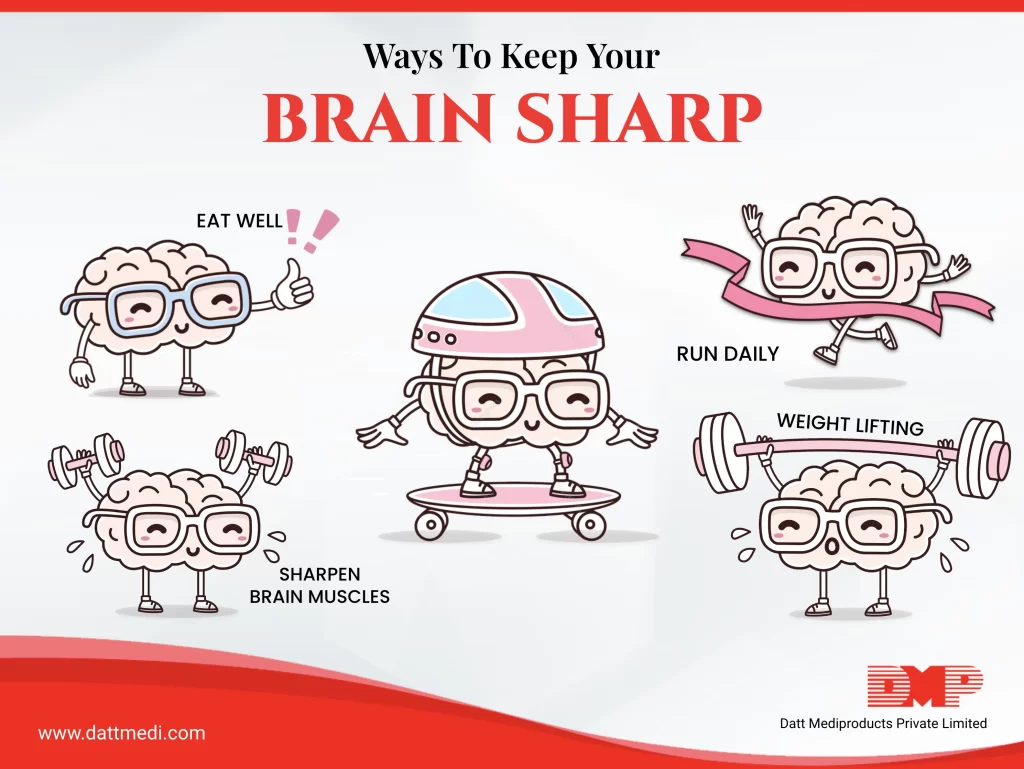
Have you ever gone to your kitchen and forgotten what you went there for? Or, have you ever experienced a senior moment and forgotten a familiar word in a conversation?
You need to do something to maintain your cognitive health and fitness.
We as DMP, consolidate and bring to you some strategies to help boost your mental functioning and sharpen your mind.
You can try one or more or all of these, whichever suits you the best.
Play Some Brainy Games:
Train your brain with some games or apps. These may help increase your mental flexibility, making you more intelligent and mentally sharper as you age. You can choose to play jigsaw puzzle or any other card game to strengthen your brain.
Research titled “Jigsaw Puzzling Taps Multiple Cognitive Abilities and Is a Potential Protective Factor for Cognitive Aging” published in the journal named “Frontiers in Aging Neuroscience” shows that jigsaw puzzling strongly engages multiple cognitive abilities in a long-term could relevantly benefit cognition.
Read Regularly for Intellectual Stimulation:
Read something on a regular basis and more frequently for cognitive aging decline. A study published in the Neurology journal, “Life-span cognitive activity, neuropathologic burden, and cognitive aging”, it is shown that a regular reading and writing in late life reduces the rate of memory decline by 32%.
Keep Learning and Try New Things to boost Cognitive Functioning:
Start writing. You may wish to maintain an everyday journal or even try your hands-on poetry, creative stories or anything. Just write anything more frequently to express yourself and this will give a jumpstart to your creative energy.
Pursue a hobby to Sharpen your Brain Muscles:
Whether music, dancing, photography, cooking, gardening or art & craft or may be learning some foreign language, convert your long-term hobby in thoughts to reality. It improves your cognitive functioning.
Dance Out:
The Centers for Disease Prevention and Control says that learning new dance moves can increase your brain’s processing speed and memory. Be it any form, just grab a partner or gather some friends and dance your heart out.
Take care of your Body:
Last but not the least, take care of your physical self if you wish to take care of your mind. Keep yourself active, meditate, exercise or run daily to keep your circulatory system in a working order. A lot of preventable diseases like diabetes, hypertension can be avoided if you take care of your body.
Eat Well:
Do not under eat nor should you bing eat as too less and too much energy can disturb your brain’s delicate machinery. Over-eating can make your brain sluggish and under-eating may impair its functioning. So, eat a healthy diet which is rich in fibres, with a moderate amount of proteins, fats and carbs. This maintains good gut health while optimizing your internal organs’ health and your external physical performance.
And It’s Time to Beauty Sleep:
Having a good nice sleep not only soothes your mind, it rejuvenates your brain too. When you sleep, you take rest. It gives your mind time to figure out and consolidate your memories and discard the unwanted ones. Chronically sleeping poorly is linked to your cognitive decline.
You can follow us @dattmediproducts for more such amazing healthy tips and tricks.




